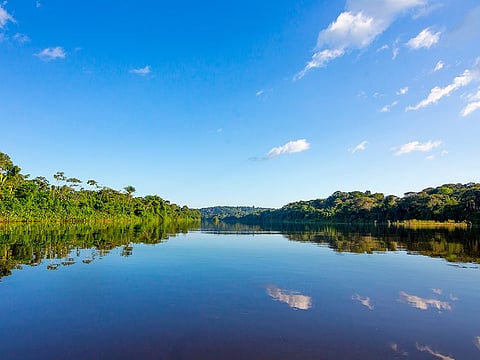Suriname moves forward
By implementing a comprehensive recovery plan, the new government leaves the past behind

Suriname welcomes a new era. After decades of crisis, the country is taking an encouraging direction. It all started over a year ago, when President Chan Santokhi took office and began implementing measures to stabilise fiscal and monetary systems. Their IMF-approved recovery plan has brought domestic financial prices under control and a surplus to finance a social security net; they reached staff level agreement and await board level approval; and they are negotiating additional financial support with the World Bank and the Inter-American Development Bank.
In order to build trust and attract foreign investors, Suriname’s government established a specialised FDI Unit within the Ministry of Foreign Affairs, as well as a new investment policy that provides incentives to different types of investors and sectors. They are also fighting bureaucracy by eliminating previous barriers to doing business, like removing visa requirements and working on several IPA agreements.
Given their strategic location, Santokhi’s government is promoting Suriname as the region’s next air traffic and cargo shipment transportation hub, so they are inviting investors to set up offshore business and international airstrips in the country. Furthermore, since the 2019-2020 discovery of major offshore oil reserves, the government has placed high hopes in the development of its oil and gas industries, with production scheduled to start as early as 2025.
To further diversify, developing the tourism industry is a priority. Suriname has incredible natural resources. With a forest cover of 93 per cent, the highest in the world, it is a haven of biodiversity, fresh water and clean air. They also have great ethnic and cultural diversity, so investing in ecotourism, adventure and cultural tourism will attract visitors wanting to experience a truly unexplored country as well as investors willing to develop sustainable businesses.
Another key area is agroindustry. Santokhi’s government has identified several markets with a potential strong demand of Suriname’s food and agricultural products, the US and EUA in particular, and with a new legislation, they seek to invest in laboratories and other production facilities so more local companies can be US and EU-certified.
Being a small country with a troubled past, Suriname is used to be overlooked. However, given its recent efforts to facilitate businesses and the immense opportunities the country has to offer, it is time to start paying attention. As president Santokhi assures, “we are a beautiful country with a small population and big opportunities. We will facilitate all investments. The oil and gas production will start early 2025 and these companies are looking for arrangements. Now is the time to invest.”



